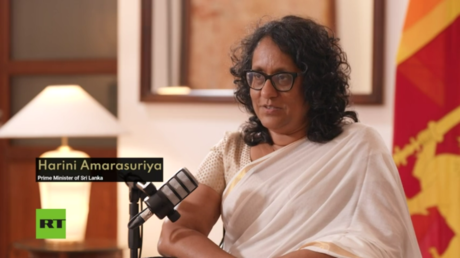
Poland has reiterated its opposition to the new bloc-wide policy regarding asylum seekers
The Polish government is firmly opposed to accepting any relocated asylum seekers under the EU’s migration pact, which threatens national security, Interior Minister Tomasz Siemoniak has stated.
The European Parliament adopted the new EU pact on migration and asylum in May 2024. The so-called solidarity mechanism requires responsibility-sharing among member states, given that countries located at the bloc’s external borders have to manage a higher influx of people. Nations that refuse to accept relocated migrants must pay €20,000 (over $20,600) per person as compensation.
Speaking to the Polish radio station RadioZet on Monday, Siemoniak reiterated Warsaw’s opposition to the pact rules, asserting that the country would not comply with the obligations.
“Our position is clear – we are opponents of the Migration Pact, and there is absolutely no question of any acceleration or delay,” said Siemoniak. “We will not accept migrants, and there will be no relocation,” he stressed.
Siemoniak also linked rising crime rates in Poland to previous migration policies, criticizing past visa policies that allowed uncontrolled entry into the country. He said the country is now addressing security concerns by implementing stricter regulations and strengthening border controls.
The minister also raised concerns about foreign criminal groups, particularly formed by Georgian migrants, emphasizing the need for measures such as deportations and stricter penalties.
In 2024, the Polish government announced plans to suspend the right of arrivals to claim asylum, despite the move clashing with European rules and international law. In October, Prime Minister Donald Tusk claimed that the EU pact cannot be fully implemented as it threatens Poland’s national security due to the country’s geographical proximity to Russia and Belarus.
The flow of migrants across the Belarus-Poland border has increased dramatically since 2021, despite the Polish authorities constructing a border fence and pushing back large groups of people.
As many as 2,500 immigrants reportedly crossed the border in September, taking the year-to-date overall 2024 figure to over 26,000.
Foreign Minister Radoslaw Sikorski has said the country was considering fully closing its border with Belarus due to an influx of Middle Eastern migrants.
Moreover, according to UN estimates, over a million Ukrainians currently reside in Poland since the country opened its doors to those fleeing the conflict there in February 2022.
Deputy Prime Minister and Minister of National Defense Wladyslaw Kosiniak-Kamysz said in an interview with the Financial Times last month that Poles are “fatigued” of Ukrainian refugees in their country, partially attributing the sentiment to the sight of young men leading an ostentatious lifestyle in Poland instead of defending their homeland.
In October, the European Commission stated that Poland remains bound by the obligations of the pact, despite having taken in thousands of Ukrainian refugees. The commission emphasized that Poland must either accept the resettlement of allocated migrants or pay a fine for each rejected individual.




